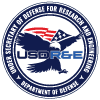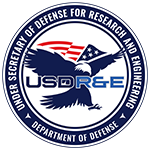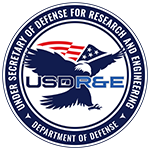The Importance of AI - Assurance in Ensuring Trust in Autonomous Systems
NEWS RELEASE: August 13, 2024
Artificial intelligence and autonomy took center stage as Dr. Kimberly Sablon, the principal director for Trusted Artificial Intelligence and Autonomy for the Office of Under Secretary of Defense for Research and Engineering, took part in discussions on AI’s role in national defense on the last day of the National Defense Industrial Association’s Emerging Technologies conference Aug. 9 in Washington, D.C.
Sablon addressed the audience on the enduring efforts to create and shape autonomous systems’ ability to support the Department of Defense’s AI objectives for joint and integrated operations.
“We are certainly starting to rethink how we perform operational planning in pace and scale with AI technology,” said Sablon. “The vision for us to make AI more distributed, interoperable and adaptable not just across the U.S. Department of Defense but also across coalition partners.”
Sablon highlighted the importance of AI-based systems in the military to be robust and resilient.
“We’ve got to have systems that are robust against adversarial manipulation and deception. Robust in their ability to perform across various mission functions, against different environmental conditions, different operational scenarios, whether in a jungle environment vice to an urban environment and terrains that are very unstructured unlike commercial sectors,” she said.
One way AI advancement differs from commercial to defense is that collaborative engagements are critical because of the need to ensure DoD systems understand commander’s intent and can adapt based on ever-changing intent and mission requirements.
“We want to start thinking about how we leverage advancements in autonomous networking and apply it to those problem sets, thinking about the architecture and communications component, bringing the software and hardware together to make this vision a reality to be more robust in our ability to operate in highly degraded, denied environments,” she said.
While AI promises to make warfighters more effective, it also brings additional challenges as it becomes more prominent in the Pentagon’s arsenal of capabilities.
“If you look back at the history of war, deception has always been used, and I don’t think is going to be any different when we talk about autonomous warfare,” Sablon said. “When you’re thinking of autonomous warfare, it certainly is going to create a more dynamic threat environment.”
To ameliorate this threat, Sablon said the key is to work more collaboratively with industry experts and other stakeholders through AI Passport -- a software federation framework that enables the sharing of AI datasets, models, evaluations, and allows collaboration to minimize the time required for the development and application of AI solutions.
“We are very committed to the whole-of-nation approach to ensure that when we are deploying trustworthy systems. I encourage people to look at it, download, learn its features and give us feedback,” said Sablon. “We want to make sure we are lockstep with industry as well as coalition partners.”
Office of the Under Secretary of Defense,
Research and Engineering (OUSD(R&E))
3030 Defense Pentagon, Washington, DC 20301-3030
Contact Us
Contact Us
Information for the USD(R&E):
Contact OUSD(R&E) Staff
Social Media: @DoDCTO on Twitter
For website issues: Contact Webmaster


